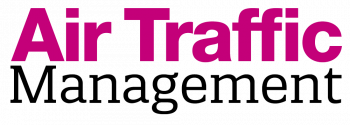The goal of this project is is to ensure the impacts from running the business are reduced in line with the science-based target of limiting temperature rise to 1.5C above pre-industrial levels. NATS had already pledged to support the aviation industry’s commitment to achieve net zero carbon emissions by 2050.
The new report shows that emissions from running the business have already been reduced by 45% since the baseline was set in 2018/19. Energy efficiency schemes are being fast-tracked, and the feasibility of generating renewable energy at larger sites is ongoing.
As a result of the pandemic, business travel came to an almost complete stop over the past year and the use of agile working has hastened a better use of people and space; all of which has improved sustainability and reduced the company’s emissions. Three new NATS sites achieved ISO14001 certification in the last year, joining 19 other NATS sites across the UK, including all civil airport towers with certification to ISO14001:2015, and audited by DNV.
The reduction in traffic levels because of Covid-19 led to a marked improvement in the efficiency of the UK domestic network. Arrival holding was almost eliminated, direct routeing increased, and constraints impacting vertical flight efficiency largely disappeared. Quieter airspace also allowed for a ground-breaking trial that saw the removal of the Organised Track Structure over the North Atlantic to allow aircraft to fly the most optimal routes.
The challenge now is to facilitate the expected increase in air traffic in the months and years ahead, while providing the most environmentally-efficient flight profiles possible. NATS’ role in supporting the industry to build back better is to do all possible to retain some of the past year’s gains in airspace efficiency, which have enabled almost 40,000 tonnes of CO2 emissions savings, representing savings of £3.5 million in fuel costs for airlines.

The report notes NATS entering into a sustainability-linked bank facility earlier this year, which includes challenging Key Performance Indicators (KPIs) linked to emissions reduction. This reflects the strong desire within the company and with external stakeholders to improve NATS’ environmental performance even further.
Even in the face of the pandemic, employees continued to support charities and causes via the Payroll Giving scheme, with more individuals than ever before contributing. In total, 12% of the workforce donated £228,390 via the scheme to 267 different charities, from Cancer Research UK and the Trussell Trust to Age UK, Mind and Hampshire Fire & Rescue.
Martin Rolfe, NATS CEO, said: “As a responsible business, our priority over the past year has been to ensure that our company and our employees come out of the other side of the pandemic in good shape and well placed to support our customers in their recovery.
“We have used this period of low air traffic to explore how we can build back better so that when traffic returns, our staff are confident and prepared, and we have used the quiet skies wisely to consider how we can improve our future operations. That includes our environmental performance, not only in how we manage UK airspace and modernise it to deliver CO2 and noise benefits, but also our own estate. Our commitment to deliver a more sustainable aviation industry is real – our future depends upon it – and we have the expertise and experience to make it happen.”
